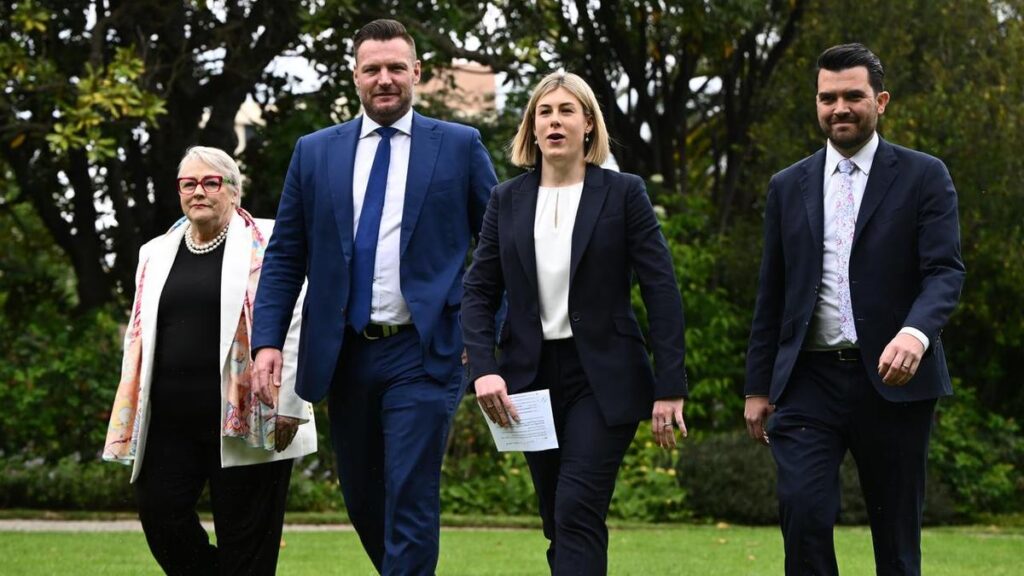
The newly appointed leader of the Victorian Liberals, Jess Wilson, is under pressure to navigate factional dynamics as she prepares to select her first shadow cabinet. Wilson’s leadership follows the abrupt removal of Brad Battin, who lasted less than a year in the position. The challenge she faces is significant, with calls for a disciplined approach to unify the party ahead of the critical state election scheduled for November 2026.
Former Liberal premier Jeff Kennett has urged Wilson to avoid catering to internal factions when choosing her team. He emphasized that her ability to forge a successful path as leader will hinge on a demonstration of unity within the party, which has struggled with internal conflicts for years. “Her success or otherwise will depend on the ability of the party to now show a discipline they’ve not shown in a decade,” Kennett stated in an interview with AAP.
Kennett noted that Battin and his predecessor John Pesutto had worked to restore the party’s standing but were ultimately undermined by factional disputes. This leaves Wilson in a precarious position, tasked with managing relationships with individuals who contributed to her predecessors’ downfall. He specifically mentioned Bev McArthur, a faction leader, as someone who has been detrimental to party cohesion. “She is not part of the future,” Kennett asserted, highlighting the need for Wilson to prioritize the state’s interests over factional loyalties.
In his analysis, Kennett suggested that Wilson must include Battin, Pesutto, and former leader Matthew Guy, along with opposition health spokeswoman Georgie Crozier, in her inner circle. He warned that excluding these figures would significantly limit her capacity to effect meaningful change within the party and for the state. “If they are not part of her inner sanctum, then she’s substantially reduced her capacity to deliver for the state,” he explained.
At just 35 years old, Wilson has the potential to resonate with younger voters and mothers, positioning herself as relatable and authentic. Kennett acknowledged, however, that her new role will require a steep learning curve. “I don’t think she has any idea of what being leader of the opposition requires in terms of time commitment,” he remarked, recalling his own experience in the role, which demanded constant engagement.
The Victorian Liberals have faced challenges in recent years, having been out of government for all but four years since the turn of the century and not holding power since 2014. With a daunting task ahead, Wilson must secure at least 16 seats to form a majority government in the upcoming election. Her leadership will be critical in determining whether the party can rally and present a compelling alternative to voters.
As Wilson prepares to unveil her shadow cabinet, the eyes of the party and the public will be on her decisions, which could either set a new course for the Victorian Liberals or deepen existing divides. The coming weeks will be telling as she balances the need for unity with the complex realities of internal politics.






